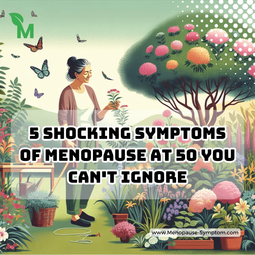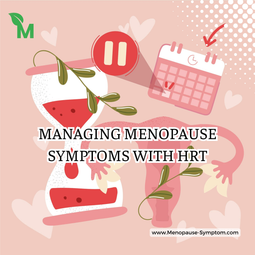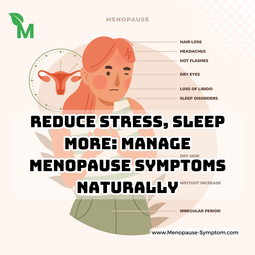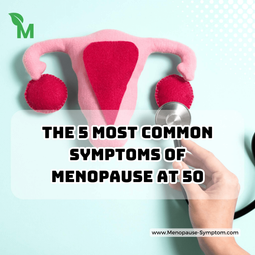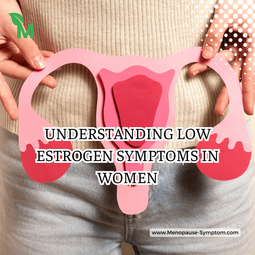Recognizing Premenopausal Signs and Symptoms: A Guide for Women
As women, our bodies are constantly evolving, and one of the most significant changes we experience is the transition to menopause. But before we reach that stage, there's an important phase called perimenopause that deserves our attention. This period, which can last for several years, is marked by various premenopausal signs and symptoms that signal the beginning of our body's transition.
Many women are caught off guard by these changes, often mistaking them for other health issues or simply attributing them to stress or aging. However, recognizing these signs early on can empower us to take control of our health and well-being during this crucial time.
Key Premenopausal Signs and Symptoms to Watch For
1. Irregular Menstrual Cycles
One of the most noticeable premenopausal signs is a change in your menstrual cycle. You might experience:
Longer or shorter periods
Heavier or lighter flow
Skipped periods
Spotting between periods
These changes occur due to fluctuations in estrogen and progesterone levels. While irregular periods can be concerning, they're often a normal part of the perimenopausal process.
2. Hot Flashes and Night Sweats
Perhaps the most infamous of premenopausal symptoms, hot flashes and night sweats can be disruptive and uncomfortable. These sudden feelings of intense heat, often accompanied by sweating and flushing, can occur day or night. While not all women experience them, for those who do, they can be a significant challenge.
"Hot flashes are like your body's internal thermostat going haywire. One moment you're fine, the next you're a human furnace!"
3. Mood Swings and Irritability
If you find yourself experiencing unexplained mood swings or increased irritability, you're not alone. Hormonal fluctuations during perimenopause can affect neurotransmitters in the brain, leading to:
Sudden mood changes
Increased anxiety
Feelings of sadness or depression
Irritability and short temper
It's important to recognize these emotional changes as potential premenopausal symptoms and not dismiss them as character flaws or personal weaknesses.
4. Sleep Disturbances
Many women report difficulty sleeping during perimenopause. This can manifest as:
Trouble falling asleep
Waking up frequently during the night
Early morning awakening
Overall poor sleep quality
These sleep issues can be exacerbated by night sweats and contribute to daytime fatigue and irritability.
5. Changes in Libido
Fluctuating hormone levels can also affect your sex drive. Some women may experience a decrease in libido, while others might notice an increase. Additionally, vaginal dryness can make intercourse uncomfortable, further impacting sexual desire and satisfaction.
The Impact of Premenopausal Symptoms on Daily Life
Understanding these premenopausal signs and symptoms is crucial because they can significantly affect your quality of life. From work performance to personal relationships, the effects of perimenopause can be far-reaching.
For instance, sleep disturbances can lead to daytime fatigue, affecting your productivity and mood. Mood swings and irritability might strain relationships with family, friends, and colleagues. Hot flashes can be embarrassing and disruptive, especially in professional settings.
Taking Control: Managing Premenopausal Symptoms
Recognizing these symptoms is the first step towards managing them effectively. Here are some strategies that can help:
1. Lifestyle Modifications
Regular exercise: Helps improve mood, sleep quality, and overall health
Healthy diet: Focus on whole foods, fruits, vegetables, and lean proteins
Stress reduction: Try techniques like meditation, yoga, or deep breathing exercises
2. Natural Remedies
Herbal supplements: Some women find relief with black cohosh or evening primrose oil
Acupuncture: May help with hot flashes and mood swings
Cool compresses: Can provide relief during hot flashes
3. Medical Interventions
Hormone therapy: Can be effective for severe symptoms, but should be discussed with your doctor
Non-hormonal medications: Certain antidepressants or other medications may help manage specific symptoms
Vaginal moisturizers or lubricants: Can help with vaginal dryness and discomfort.
The Importance of Open Communication
One of the most powerful tools in managing premenopausal signs and symptoms is open communication. Talk to your healthcare provider about your experiences. They can provide valuable insights, rule out other potential health issues, and suggest appropriate treatments.
Additionally, don't hesitate to discuss your symptoms with friends, family, or support groups. Sharing experiences can provide emotional support and practical tips for managing symptoms.
Embracing the Change: A Positive Perspective
While premenopausal signs and symptoms can be challenging, it's important to view this transition as a natural part of life. This period can also be an opportunity for self-reflection and personal growth. Many women report feeling a renewed sense of self and purpose as they navigate this change.
"Perimenopause isn't just an ending; it's also a beginning. It's a chance to reassess your life, prioritize your health, and embrace a new chapter."
Conclusion: Knowledge is Power
Understanding and recognizing premenopausal signs and symptoms is crucial for every woman. By being aware of these changes, you can take proactive steps to manage your health and well-being during this transition.
Remember, every woman's experience with perimenopause is unique. What's important is to listen to your body, seek support when needed, and approach this phase with a positive attitude. With the right knowledge and support, you can navigate this transition with confidence and grace.
Don't let premenopausal symptoms catch you off guard. Stay informed, stay proactive, and most importantly, stay true to yourself as you embrace this new chapter in your life.
Source: Team MPS compiled, analyzed and wrote. Please dont reup without source of us. Many thanks.
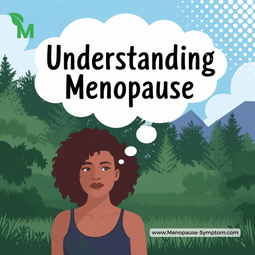
Understanding Menopause
10.11.2024
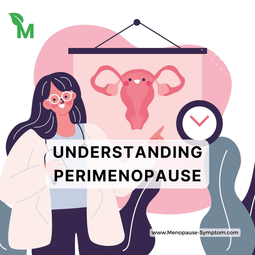
Understanding Perimenopause
Invalid Date

